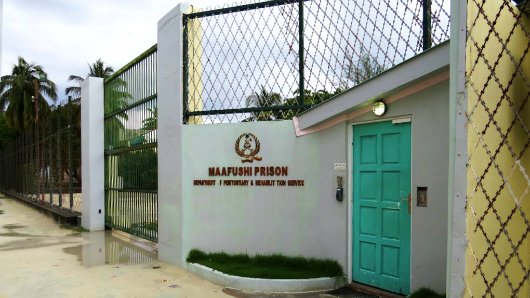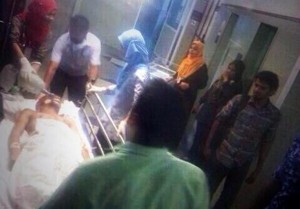The government has imposed stricter standards of personal hygiene in prisons and limited the length to which inmates can grow their facial hair.
The regulation on inmates’ discipline requires inmates to shower twice a day and clean their cells under the supervision of Maldives correctional services officers.
The stricter sanitary measures are expected to reduce the spread of diseases and will improve prison cleanliness, said commissioner of prisons Mohamed Husham.
“Skin diseases are very common in jail. Before these regulation were written, we could not tell a prisoner to even take a shower. Now we can, which will benefit both the prisoner and his cell mates,” Husham said.
The new regulation also requires male prisoners to shave their facial hair completely or keep a two-inch beard. Inmates cannot shave their heads, and hair must be kept at two centimeters.
An inmate from Maafushi Jail told Minivan News there is a lot of resistance to the new regulations.
“A majority of inmates are against it because it dictates our appearance. Plus some of us grow our beards because of religious beliefs. We won’t obey the rule. But I think there will be some who will,” he said.
Some religious scholars have expressed concerns over the provision requiring shorter beards.
“Islam requires men to grow their beards long. So no one can impose a ban on that which God has instructed us to do. It also goes against the Maldives constitution which states that no law or regulation should be made against Islamic principles,” said Dr Iyaz Abdul Latheef, the vice president of the Figh Academy.
Husham, however, defended the regulations saying it “establishes a disciplinary standard for the inmates. The appearance of prisoners is also important in the rehabilitation process.”
The commissioner of prisons said he had expected some controversy over the beards, but said: “My point is the inmates are here to be disciplined and rehabilitated. There should be an established standard on how inmates should keep their beards as well.”
Vice president of the human rights commission of the Maldives, Ahmed Tholal, says he has “some concerns” over the new regulations, but said he cannot disclose further information without a discussion among the five commissioners.
Staff at the correctional services in 2012 got the Maafushi court to annul a regulation banning them from sporting beards, but the High Court overturned the verdict citing a procedural mistake.
 (0)Dislikes
(0)Dislikes (0)
(0)
